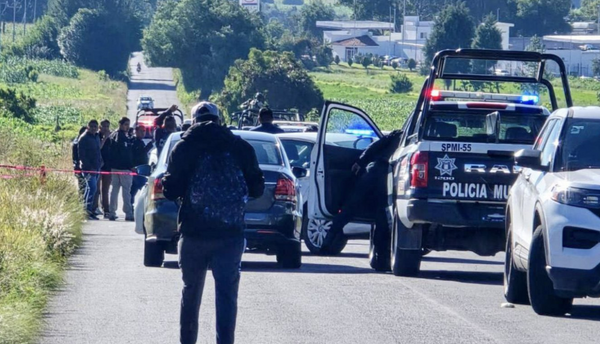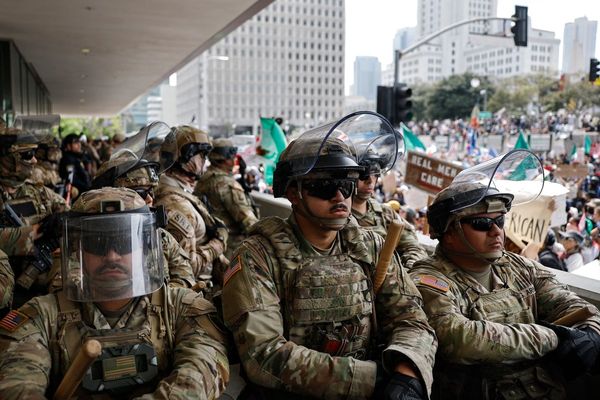The Russia-Ukraine conflict and its constellation of potential outcomes currently dominate the attention of many investors and analysts, as well as corporate and political leaders. Among the least appealing of outcomes: a long-running war of attrition. Such a scenario could put the European economy at risk and carry forward into S&P 500 earnings.
Different scenarios are likely to elicit different market reactions. A Russian victory would set the stage for a long and probably very messy occupation. A Russian withdrawal could pave the way to a gradual easing of sanctions and the slow rebuild of Ukraine's economy.
More likely in the short term, at least some analysts say, is a Russia-Ukraine cease-fire. A cease-fire could spark a relief rally, setting stocks in motion and setting up opportunities for investors. But analysts who spoke to IBD expect any relief from a negotiated end to the war to be brief, with the global and U.S. economies and the effect of Federal Reserve rate hikes seen as a bigger driver of the stock market in the months ahead.
Russia-Ukraine Conflict: Possible Outcomes
Regardless of the war's outcome — a partial defeat for Russian President Vladimir Putin; or an outright victory with a puppet regime installed in Kyiv; or regime change in Moscow — some things are quite certain.
Western countries will ramp up military budgets, at least in the short term. Germany, the European Union's mightiest member state, has already pledged to double its defense spending, including a deal for 35 U.S.-made F-35A fighter jets. In the U.S., Congress passed a spending bill this month that included $3 billion in defense support for Ukraine. President Biden added another $800 million package, which included 800 Stinger and 2,000 Javelin missiles.
So, even in case of a cease-fire, defense and security stocks are not likely to sell off dramatically after skyrocketing into the conflict, said Sam Stovall, chief investment strategist at CFRA Research.
"People realize the world is a lot more perilous today, especially if Putin remains in power, and also because of potential tensions with China, with Iran, with North Korea," said Stovall, calling the war "a wake-up call" for higher levels of defense and cybersecurity spending.
Defense contractor Lockheed Martin makes F-35s. Lockheed and Raytheon Technologies manufacture the anti-tank Javelin missiles and anti-aircraft Stinger missiles being used by Ukrainian soldiers. Northrop Grumman and L3 Harris supplied spy planes and radar systems in the buildup to war.
Travel Stocks May See Big Rebound
Outside of defense, a cease-fire could see recent stock market winners and losers swap places. Stovall researched which S&P 500 stocks sold off hardest between the Feb. 24 Russia invasion and the March 8 market bottom. He thinks those stocks could rebound furthest in the event of a cease-fire.
"And they were almost all related to travel" with Tapestry an outlier, Stovall said. Stocks in this group include United Airlines, American Airlines and Delta Air Lines. They also include Carnival, Royal Caribbean and Norwegian Cruise Line.
Travel stocks could benefit from a cease-fire that reopens air and sea travel routes blocked by the conflict. Paused hostilities could also bring down oil prices. The Russia-Ukraine conflict disrupted global supply chains, everything from oil and gas to steel, aluminum, wheat, barley and sunflower oil.
Powell Talks Recession Risk, Super-Size Fed Rate Hikes; Dow Jones Falls
Tapestry, maker of luxury Coach handbags, could gain from the lifting of sanctions on Russian oligarchs.
One international security analyst sees the conflict potentially ending in a negotiated settlement.
"The consensus on the military side is that the Russians are pretty much stalemated and it's just going to take a while for Putin to realize that and then to make a deal — but he's not there quite yet," said Mark Cancian, a senior adviser with Washington, D.C.-based Center for Strategic and International Studies.
That said, Cancian thinks Russia could do something different. "People talk about nuclear weapons or chemical weapons — I think that's highly unlikely but not impossible," he said. "We'll all be watching that very closely over the next week or two."
Stocks Fall As Oil Jumps; 'Monster' Megacap In Buy Zone
Commodity Trade May Deflate On Russia-Ukraine Cease-Fire
Excluding defense, stocks that rallied hard into the conflict could go the other way on a cease-fire.
Commodity stocks Archer Daniels Midlands and Bunge are likely to give up some of their massive recent gains, Stovall said. Ukraine is regarded as the bread basket of Europe. Grain prices soared as Russia destroyed farms and agriculture warehouses.
Energy stocks including Chevron and Baker Hughes could also pare back hefty gains. But Stovall expects integrated oil companies to eventually resume their uptrend. He cited expanding global economies, the rebuilding of Ukraine, and Europe's desire to rely less on Russia for its energy needs.
All told, a cease-fire should be welcome news for investors. A protracted war in Ukraine risks sending Europe into recession. And though S&P 500 companies have very small exposure to Russia, they derive a big chunk of their revenue from Europe and elsewhere overseas.
However, for stocks to break out of their range and make a substantial move, analysts say monetary policy — rather than Ukraine's outcome — will be key.
"If we find that inflation is peaking, if we find the (U.S.) economy is slowing more than anticipated, whatever the numbers are that could support a less hawkish Fed, I think would cause the market to simmer down and to rally," Stovall said.
Cyclical Stocks, Small Caps
When the Fed announced its first rate hike in nearly three years on March 16, it was beaten-down growth stocks that bounced highest on the news. In the event of a Russia-Ukraine cease-fire, Steven DeSanctis, equity strategist for Jefferies, does not expect a repeat of that picture.
"It would be more of the cyclicals that would bounce, especially those companies that have more European exposure," he said. Sectors normally considered cyclical include industrials, materials, financial services and consumer discretionary, including retailers.
If and when a cease-fire does occur, DeSanctis also expects smaller companies to fare better. "You could probably see high yield spreads start to narrow, credit markets functioning better, and that's better for small and mid (caps)," he said.
LNG Stocks In Focus Amid Europe's Energy Search, Russia-Ukraine Conflict
He advises a tilt toward higher quality stocks. Whether or not there is a Ukraine bounce, DeSanctis sees signs of an economic slowdown and other stock market headwinds.
"Companies have no reason to be very bullish on 2022 earnings outlook at this point, given the uncertainty," DeSanctis said.
Brendan Livingstone, a senior market strategist at Rosenberg Research, also expects cyclical stocks to bounce in the event of a cease-fire. Meanwhile, defensive market territory, such as health care, real estate and utility stocks, would likely deflate.
He calls that a cease-fire-based trade, one to "rent but not own," because cyclical stocks will struggle as rates rise and the economy slows. He does not believe a Russia-Ukraine cease-fire will bring an immediate end to sanctions on Russia, meaning supply chain disruptions will continue and commodity prices will remain high.
"Any upside potential is somewhat capped by the fact the Fed is going to have fight inflation here," Livingstone said.







